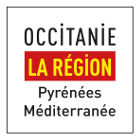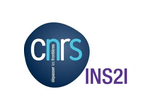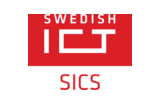Invited Talks
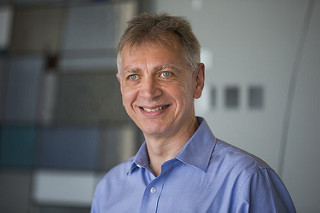
Pascal Van Hentenryck is the Seth Bonder Collegiate Professor of Engineering at the University of Michigan. He is also Professor of Industrial and Operations Engineering, Professor of Electrical Engineering and Computer Science, and Core Faculty of the Michigan Institute of Data Science. Van Hentenryck is the designer and implementor of numerous optimization systems, including CHIP (the first CP system over finite domains), Numerica, OPL (now an IBM product), and Comet. He is the recipient of two honorary degrees and is a fellow of the Association for the Advancement of Artificial Intelligence. He was awarded the 2002 INFORMS ICS Award for research excellence in operations research and compute science, the 2006 ACP Award for research excellence in constraint programming, the 2010-2011 Philip J. Bray Award for Teaching Excellence at Brown University, and a 2013 IFORS Distinguished Speaker award. He is teaching a MOOC on Discrete Optimization and Constraint Programming for Industrial and Operations Engineers.
Evidence-Based Optimization of Complex Infrastructures
For the first time in the history of humankind, we are accumulating data sets of unprecedented scale and accuracy about physical infrastructures, natural phenomena, man-made processes, and human behavior. These developments, together with progress in high-performance computing, predictive models, and operations research, offer novel opportunities for optimizing complex infrastructures holistically. We present some exciting projects in evidence-based optimization and highlight some challenges and opportunities for constraint programming in this space.
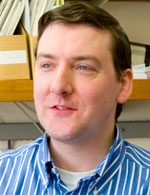
David Manlove is a Senior Lecturer in Computing Science at the University of Glasgow, where he has been since 1995. He is interested in algorithms for problems involving matching agents to commodities (e.g., junior doctors to hospitals, kidney patients to donors) in the presence of ordinal preferences or cardinal utilities. He has written or co-authored over 50 papers in this area, and his book "Algorithmics of Matching Under Preferences" was published in 2013. Much of this research has involved designing algorithms to cope with NP-hard optimization problems arising in healthcare-related settings, working in collaboration with the National Health Service in the UK. He is a member of the steering committee of the multi-disciplinary MATCH-UP workshop (International Workshop on Matching Under Preferences), having co-organised the first and third meetings in the series.
Optimizing preferences and social welfare in healthcare-related matching problems
Matching problems typically involve assigning agents to commodities, possibly on the basis of ordinal preferences or other metrics. These problems have large-scale applications to centralised matching schemes in many countries and contexts.
In this talk I will describe the matching problems featuring in two such schemes in the UK that have involved collaborations between the National Health Service and the University of Glasgow. One of these dealt with the allocation of junior doctors to Scottish hospitals (1999-2012), and the other is concerned with finding kidney exchanges among incompatible donor-patient pairs across the UK (2007-date). In each case I will describe the applications, present the underlying (NP-hard) algorithmic problems, outline the various solution techniques and give an overview of results arising from real data connected with the matching schemes in recent years.
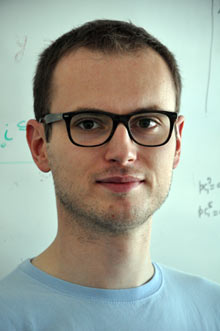
Andrey Rybalchenko is a senior researcher at Microsoft Research. He focuses on automated methods and tools for formal software and network verification. In the past, Andrey was a professor at Technische Universität München, a researcher at Max Planck Institute for Software Systems, EPFL, MSR Cambridge, Max Planck Institute for Informatics, and University of Saarland. Andrey was selected for MIT TR35 (2010) and Otto Hahn Medal (2005), received an ERC Starting grant (2012) and a Microsoft Research European Fellowship (2006).
Horn Constraints for Software Verification and Synthesis
We will show how Horn constraints can be used to describe verification and synthesis problems, and how such constraints can be solved efficiently. In particular we will demonstrate how cardinality operators help to reason about quantitative properties and carry out counting-based correctness arguments, which are useful for the verification of information flow properties and parametrized systems.

Zico Kolter is an Assistant Professor in the School of Computer Science at Carnegie Mellon University, with appointments in the Computer Science Department, the Institute for Software Research (in the Societal Computing program), and affiliated appointments with the Machine Learning Department, the Robotics Institute, and the Electrical and Computer Engineering Department. His work focuses on machine learning and optimization, with a specific focus on applications in smart energy systems. From an algorithmic standpoint, he has worked on fast optimization algorithms for a number of problems and for general convex programs, large-scale probabilistic modeling, stochastic optimization, and reactive machine learning algorithms. On the application side, he has worked on energy disaggregation, probabilistic forecasting for energy systems, and model predictive control techniques for industrial control in the electrical grid.
Optimization and Control in the Smart Grid and Beyond
The world's electrical energy system is transforming, evolving from a "top-down" purely physics-driven process to a digital, interconnected system with bidirectional control. This new electrical grid, broadly referred to as the smart grid, offers many opportunities for advanced optimization and AI techniques to play a transformational role. This talk will highlight some general themes and optimization problems that arise frequently in these settings, and also discuss some of our work on general stochastic control approaches in these settings. I will then close by discussing some broad themes in general-purpose optimization, inspired by the smart grid setting, but with general applicability to a wide range of problems.


